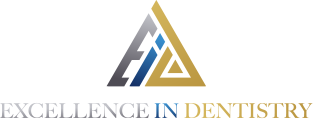Do you think you may be grinding your teeth?
Look for these telltale signs
Bruxism, or teeth grinding, can be a serious problem, leading to painful and destructive symptoms, including abnormal wear patterns, gum recession and fractured teeth. What most people do not know is that this condition can be easily treated by consulting a dentist and following the prescribed methods to stop grinding and clenching. The majority of Americans will experience bruxism at some point in their lifetime, so it is not an unusual topic to bring up with your dentist, and you will be surprised to know how easy the condition is to correct.
Before you ask your dentist about bruxism, you will want to look for some key signals telling you whether you are grinding or clenching your teeth throughout the day, or (more commonly) in your sleep. Some of the most common signs and symptoms are as follows:
Waking up your sleeping partner
Since grinding most often occurs during sleep, you will usually not even know you are doing it. Sometimes grinding, chewing or clenching motions can be rather loud, and may be heard by a sleeping partner or a parent.
Earache, headache or jaw pain
These are some of the most obvious signs that you are grinding in your sleep. If you wake with a dull, lingering headache on a regular basis, you are probably putting pressure on your face and head during sleep. You may also be causing damage to your jaw by straining those muscles. Furthermore, chronic earaches could be caused by consistent clenching of teeth.
Stress or tension
You may also be feeling added stress or tension throughout the day carried over from your straining, grinding, and clenching throughout the night. Excess stress can be both a cause and a symptom of bruxism and it is important that you learn to relax to maintain healthy teeth.
Poor sleep or exhaustion
There are a number of sleep disorders which cause people to get inadequate rest. Bruxism is the most common. If you are waking up feeling groggy and are sleepy throughout the day, and these symptoms persist for a few weeks, you should be looking for signs of bruxism and may want to consult your dentist.
Deterioration of dental restorations
Grinding, and especially clenching, causes direct pressure on dental restorations, which may collapse or crack. This is not only painful and dangerous to your dental health, but also expensive to repair. Without the proper treatment, grinding could undo all of the money and time you have invested in a beautiful smile.
Now it is time for you to look at your own dental history and ask yourself if you are experiencing any of the above symptoms. If so, then click here to schedule a free consultation.
After a diagnosis has been made, there are a number of treatment options. Before we talk about them, it is important to understand how serious bruxism can be, and what types of results it can have on your smile.
Next week I will explain why grinding your teeth can be so harmful, and what is actually going on when you grind your teeth.
What Our Patients Are Saying
First class operation; (they show) sincerity, knowledge, professionalism. The staff works together as a team and I notice they all like each other & support each other.
— Suzie C.
By far the best place i have ever been to. Dr jones dr stevens and jen r are beyond amazing. The staff there is top notch. The service here is top notch. I wouldnt even consider going anywhere else. This place these people are changing my life. I domt even know how i could ever thank them enough
— Rebecca Pence
I have been to other dentists and I was not impressed at all with the office and their staff. I really enjoy coming here the doctors and staff are wonderful! Thanks for everything you do for my family and myself!!
— Anonymous

Contact Us!
Family Dentistry
Information Packet
How it works, how much it costs, and much more...











